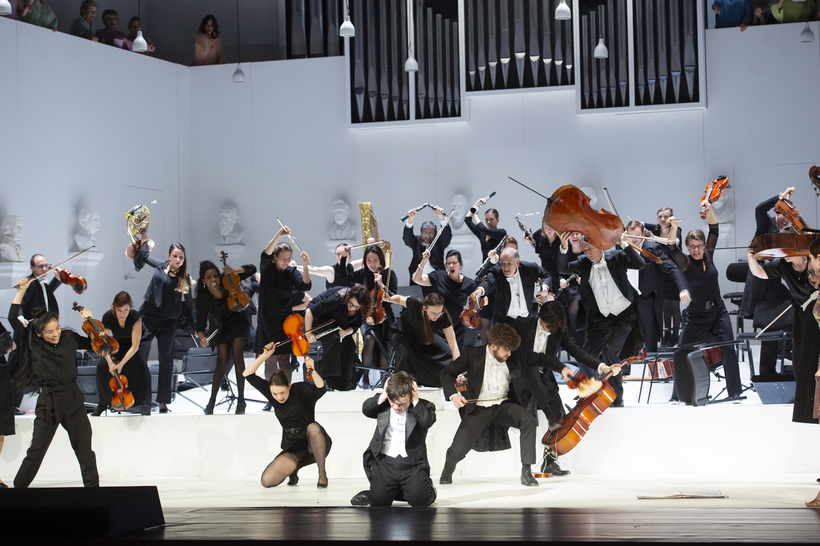Onstage, repelled but attracted, a teen Kardashian is playing cat-and-mouse with a visionary outsider she has the power to destroy. In the orchestra pit, the music pulses with sumptuous post-Wagnerian decadence.
You’re thinking Salome? No, we’ll save Richard Strauss’s scandalous Biblical smash for another time. Tonight, we’re onto that rarity Der Zwerg (The Dwarf), by Alexander von Zemlinksy, who shared with Strauss a culture, a zeitgeist, a milieu—and also a fascination with the female gaze as portrayed by the gay icon Oscar Wilde, whose voracious gazing females are transgendered projections of himself.
Adapted in broad outline from Wilde’s children’s story “The Birthday of the Infanta,” Der Zwerg is a fable for sophisticates who have read their Freud. The sex object in Zemlinsky’s opera is a misshapen dwarf, the most exciting of the gifts presented to the little princess on that special occasion.Wherever he goes, people laugh—with delight, as he supposes, never having seen himself in a mirror.
Day One with his new mistress, that changes, and he dies of a broken heart, to her complete indifference. “For the future,” the royal 12-year-old decrees in Wilde’s original, “let those who come to play with me have no hearts.” Her 18-year-old operatic counterpart is equally aloof. “I’ll keep dancing,” she decides, and off she goes.
Poetic in spirit but physically grotesque, the Dwarf reflects Zemlinsky’s self-loathing as a man who was short, no looker, and notoriously unlucky in love. (Wilde may have identified with him, too.) Zemlinsky’s librettist Georg C. Klaren heightens the inherent pathos of the Dwarf’s predicament in a new scene with a lady-in-waiting under orders from the Infanta to shatter his illusions. She can’t bring herself to do it, but it happens anyway.

The obvious visual reference for Der Zwerg would be the Velázquez masterpiece Las Meninas. In her two-year-old staging for the Dutch National Opera, the Dutch filmmaker Nanouk Leopold instead presents the Spanish court (including the lone male official) as so many bottle-blonde paper-doll Miss Piggys, wallowing in the mud swathed in pink chiffon. The Dwarf apes Elton John in fantasy silk and angel’s wings.
At the Deutsche Oper, Berlin, Tobias Kratzer’s sleek, antiseptic new take features not one dwarf but two, both dressed in a concert artist’s classic white tie and tails, leaving the gargoyle persona to the viewer’s imagination. The actor Mick Morris Mehnert, who is a little person, remains mute throughout. The strapping tenor David Butt Philip begins at a music stand, stage left, apparently “just a voice.” But it isn’t long before he moves in on the action, most startlingly as the Dwarf’s mirror image (or is it the other way around)?
Musically, the two productions are equally distinct. Lorenzo Viotti, the conductor in Amsterdam, detonates the score’s expressionist payload with Dionysian abandon. In Berlin, Donald Runnicles intermingles the cataclysms with oases of exquisite refinement, leaving the voices—most importantly the Dwarf’s—ample space to bloom. An added plus in Berlin is a brief but sharp dance prologue around a piano, in which Zemlinsky’s beloved student Alma Schindler is seen to lead him on and then dump him—as the lady really did, moving on to marry Gustav Mahler, the first of her three celebrity husbands.
Der Zwerg for the Deutsche Oper, Berlin is available for streaming on medici.tv. Der Zwerg for the Dutch National Opera, Amsterdam, is available on the OperaVision Web site
Matthew Gurewitsch writes about opera and classical music for AIR MAIL. He lives in Hawaii
